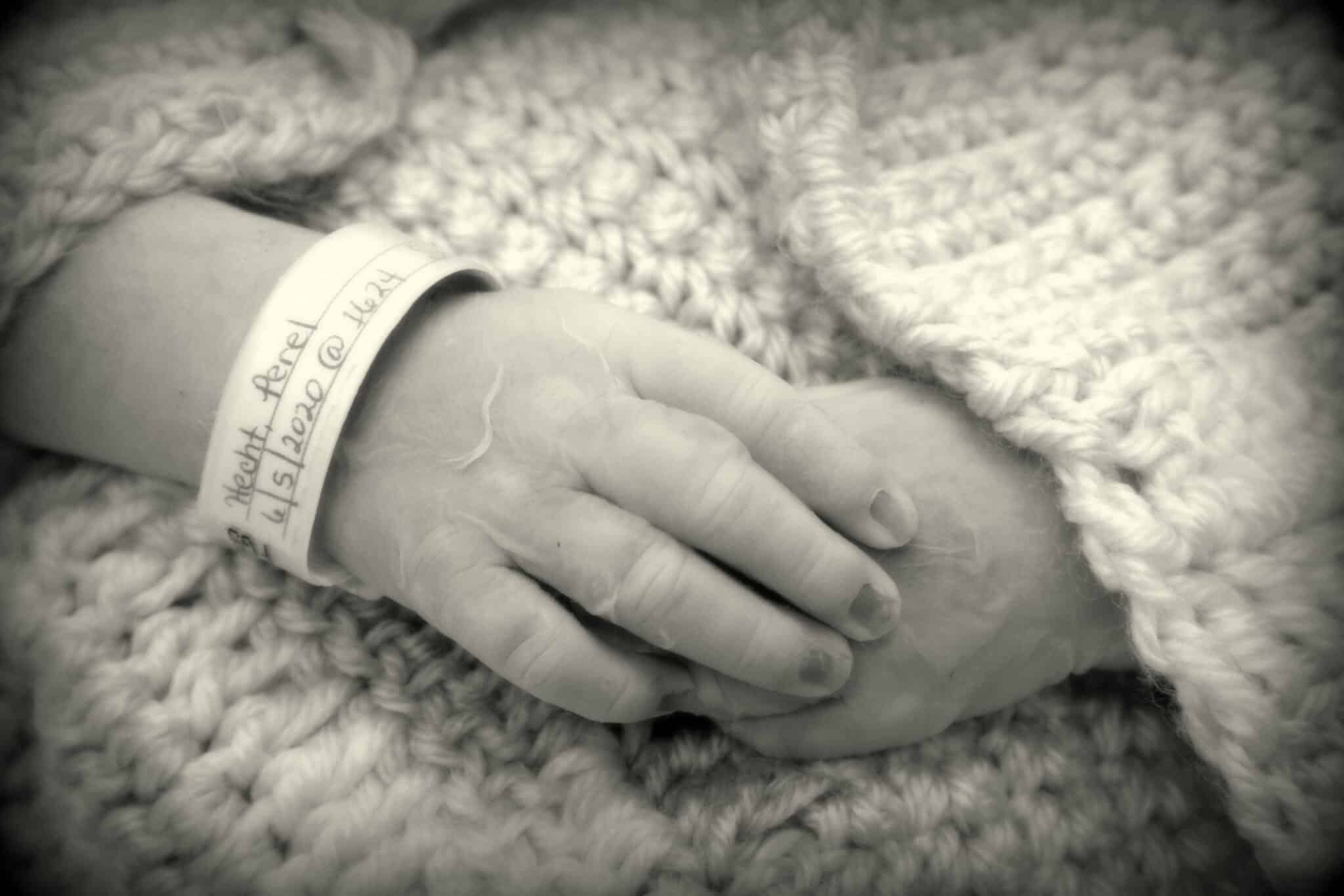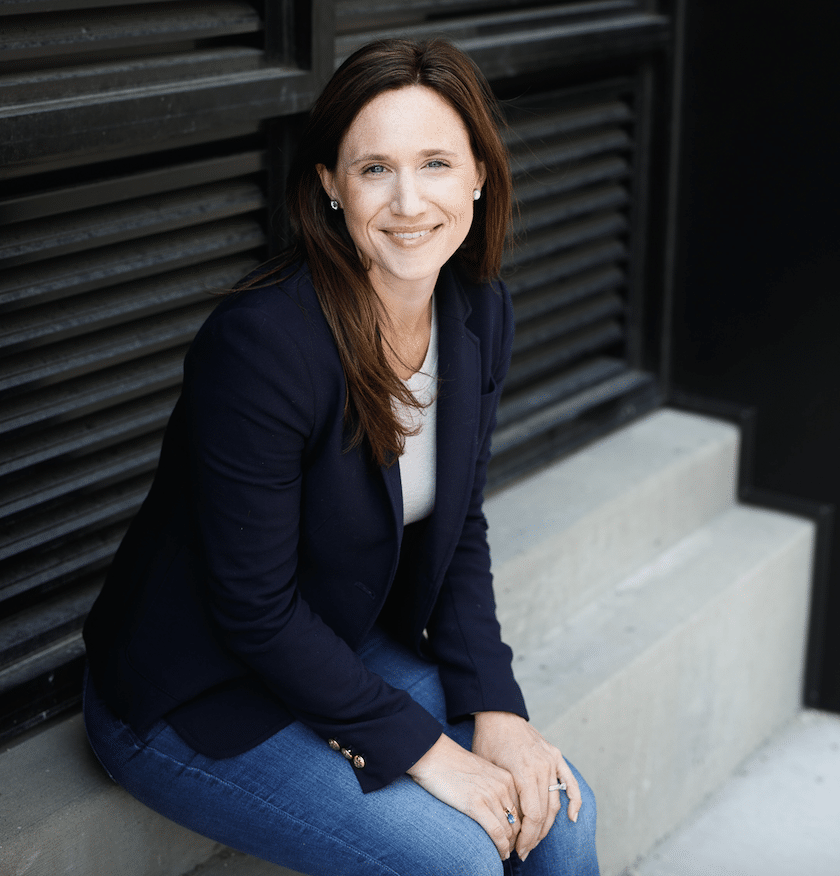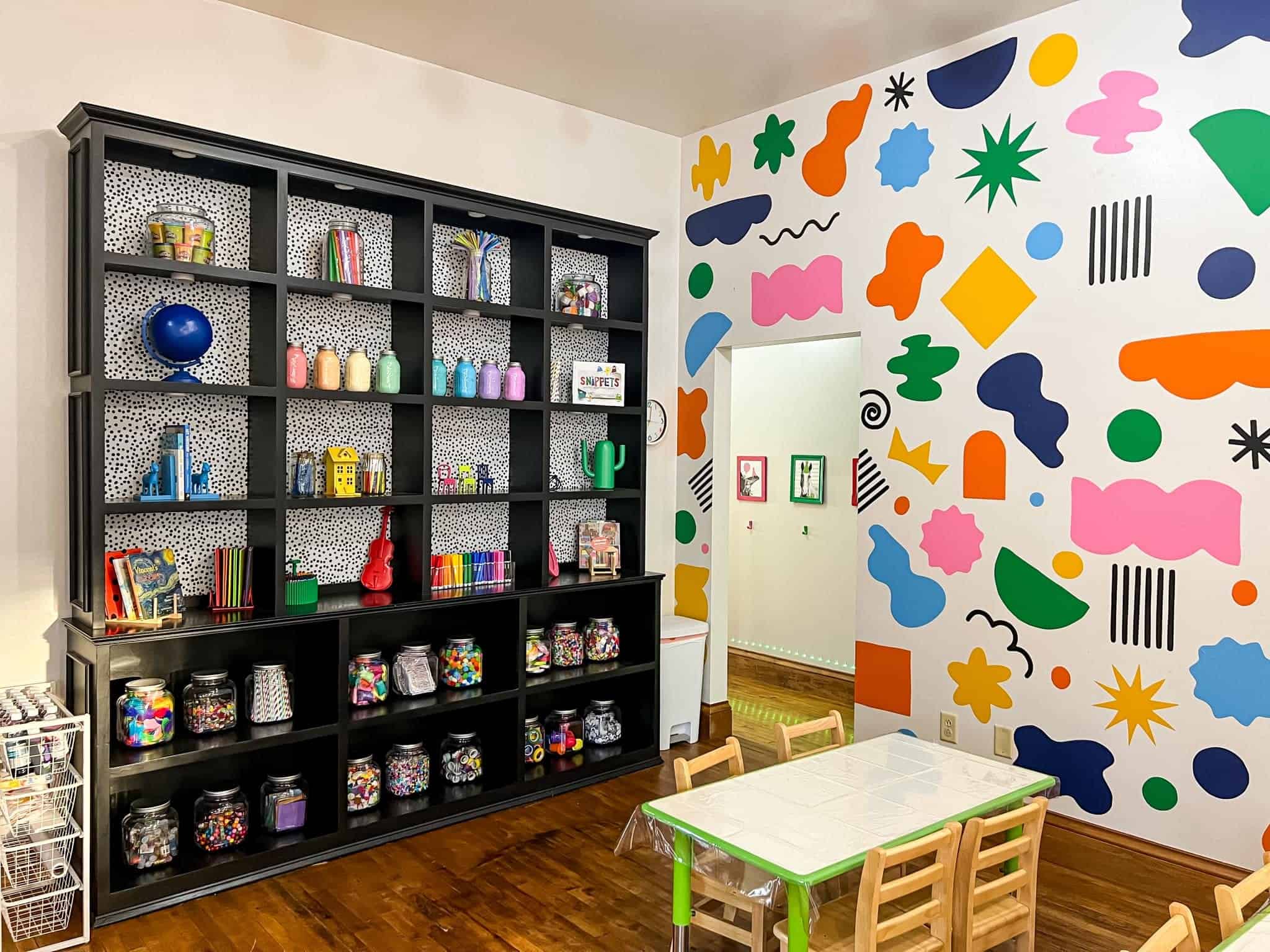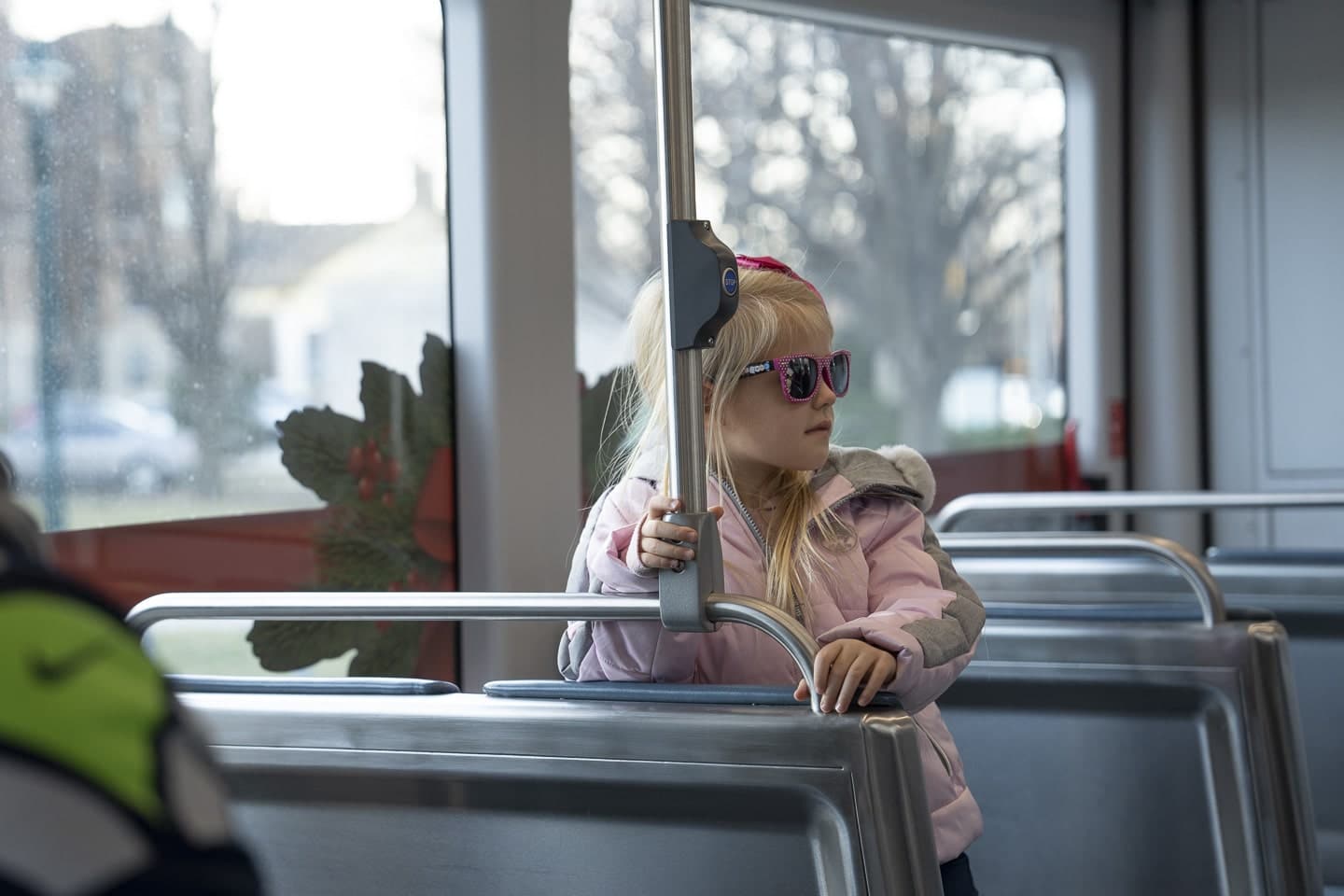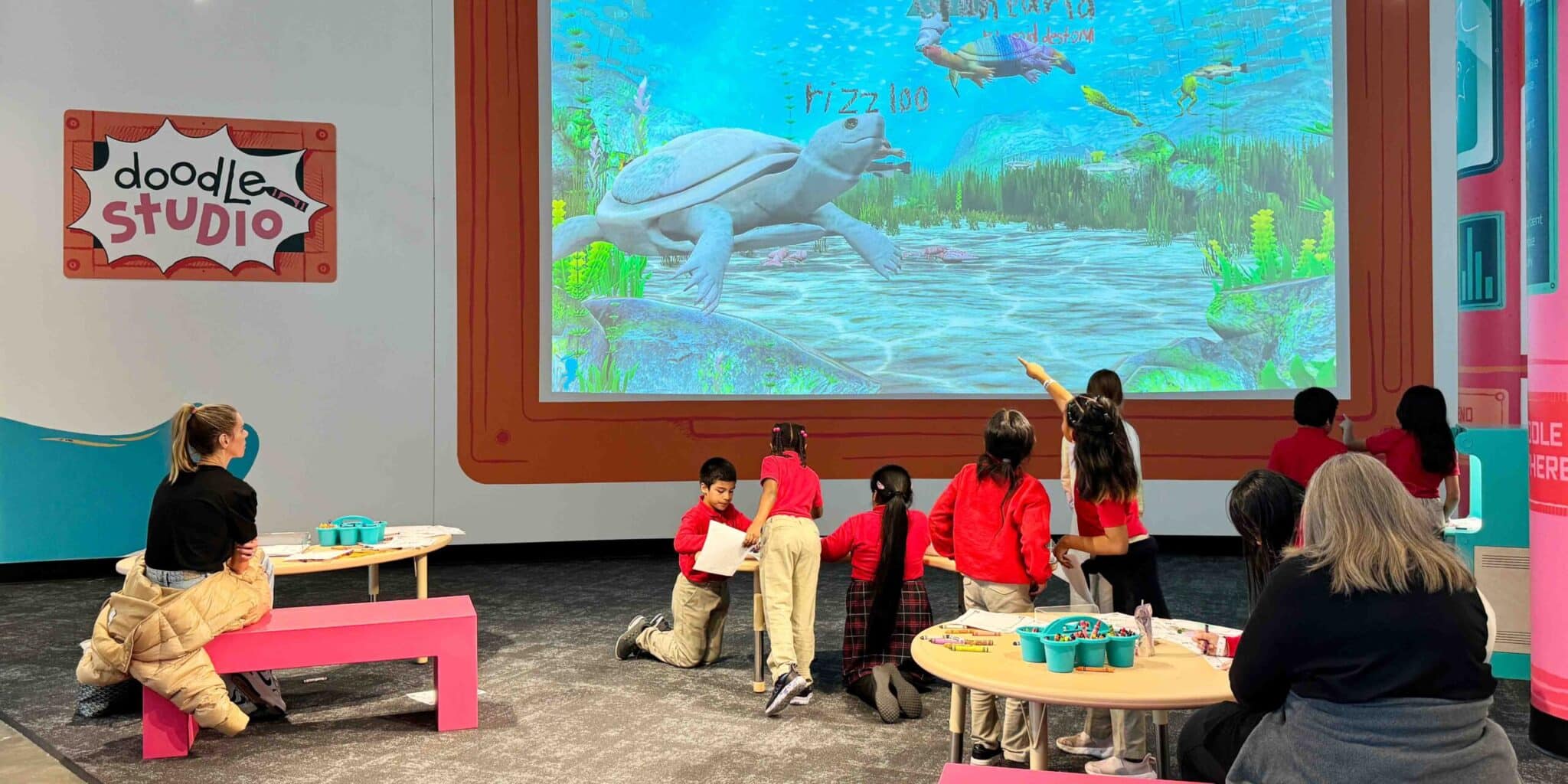
One in four women will experience a miscarriage. In the United States, one in 160 babies will be stillborn—delivered without a heartbeat. But despite these numbers, the realities of life after pregnancy and infant loss are still mostly undiscussed in our culture. We love to share pictures of baby bumps and cake smashes; no one wants to talk about babies who have died, or the parents who mourn them every day, walking through life with holes in their hearts.
Over the coming months, Milwaukee With Kids will feature a series of articles that explore one mother’s journey through the grief of loving a child who has died. It is our hope that by sharing these reflections, we can help grieving parents feel less alone, and help the people who love them better understand what they’re going through.
Together, we can create a more supportive culture for bereaved parents.
Perel Skier Hecht is a freelance writer and editor. She lives with her husband, two rambunctious boys and one very precocious daughter in Milwaukee. In June, Perel’s younger daughter, Menucha, was born without a heartbeat three weeks before her due date. Perel has been writing about her struggle to make sense of life without her baby at her site, Still Life.
The three months leading up to June 2020 had been—I thought—some of the hardest I could remember. They consisted of the entire last trimester of my fourth pregnancy, which happened to overlap with the explosive spread of the coronavirus pandemic.
I had thought being pregnant was hard when school was still a thing. Suddenly it seemed like all my parenting resources were gone at the time I needed them the most. The libraries and playgrounds we usually visited were closed. Playdates were a thing of the past. Even visiting my parents, who live a block away, was questionable.
It was spring in Milwaukee: muddy, cold and wet. My husband, who has always worked long, hard hours, found himself busier than ever, mostly working from the minute the kids got up to the minute they went to sleep again, often later. My 5-year-old did not especially enjoy Zoom school; my 4-year-old and 2-year-old, who were usually home with me, didn’t understand why we couldn’t go to any of the fun places we used to go every day.
And I did not enjoy being pregnant. It was hard to walk, to sit, to stand, to sleep. I didn’t remember it being so hard with my first three. It seemed like I was always exhausted or nauseous and trapped alone in my house with three crazy children too young to understand why their lives had suddenly been turned upside down.
I am a planner. I must always know what comes next. For the first time in a long time, I had no idea what was coming, and it scared me.
I made the same joke/nonjoke to everyone: my plan was to pray for camp to open, drop the kids off, then go to the hospital to deliver my baby. I just had to make it to June 22nd.
My grandmother said, “There’s no way you’ll last that long.” And she was right.
June 3rd was a normal day. I remember feeling reasonably upbeat. The weather was warm. I had seen my doctor the previous week and everything looked good—so good that I cancelled my next appointment. “You’ve done this before,” he said. “You know nothing really happens between now and labor anyway. Just call me if you notice any decrease in movements; otherwise I’ll see you in labor and delivery.”
June 4th was not normal, and it took me a long time to put my finger on why. It was hot, and like every day, I had to figure out what to do with the kids. I dragged them out on a long walk in the sun to the grocery store, then dragged them home. Everyone was sweaty and tired and whiny, including me.
I argued with my daughter about sitting through Zoom classes she did not want to attend, then argued with her about not hanging up in the middle of a gymnastics Zoom she had begged me to put on. I tried to work out while my toddler sat on me and opened and closed my computer and my preschooler asked for at least three snacks. I made a dinner that no one ate. I lost my patience more than once. I did laundry. I watched a cooking show on Netflix while I washed dishes and cut up fruit for tomorrow’s snack. And through it all I had a vague sense of unease. Something was wrong, but what?
I bickered with my husband over nothing, then sat on my bed while he called in to a Zoom meeting, trying to figure out where this sense of dread was coming from.
Hormones, I thought. I’m exhausted. I’m 37 weeks pregnant and I’ve just had it. But then came another thought, a much worse thought: I can’t feel the baby.
Like my other children, this little girl had always been incredibly active. Just last week my OB had joked about having to chase her all over my abdomen with his transducer. I had never felt the need to do kick counts because an hour rarely passed without her poking her elbows around or stretching or dancing or doing whatever it is babies do in there. Sometimes I even woke in the middle of the night because of it.
But usually the biggest production of the day was after I ate supper, when I was sitting down (sometimes for the first time) and could relax. And I didn’t remember her dancing that night.
Why am I winding myself up at 9 p.m.? I thought. This is ridiculous. I’m sure I felt her this morning. She’s probably sleeping. I’ll feel her move later. Nothing is wrong.
So I laid down on my bed and waited, staring at the clock. Ten minutes passed. Nothing.
Drink something, I told myself. If you call the doctor they’ll tell you to drink juice and lie down. I had been down this road before, with my first pregnancy, back when I had time to worry about things like this. You drink the juice, you come in for a non-stress test, etc., etc., everything’s fine. Everything is always fine.
I went downstairs. I drank juice. I laid down on my bed. Nothing.
I texted my sister: Hey, if I had to go into the hospital tonight just to check something quickly, could you stay with my kids for a little bit?
Then I called my OB.
“It’s probably nothing,” he agreed, “but better safe than sorry. I’ll order a non-stress test. You know the drill.”
I texted my husband (still on his Zoom call, totally oblivious to any of the increasingly alarming conclusions I’d jumped to in the last half hour): We need to go to the hospital for a non-stress test. Right now.
Figuring I’d be there for at least an hour, maybe longer, I grabbed a book, changed out of my pajamas, and tried to tell myself that I was being unbelievably dramatic. This was my fourth baby, I was 37 weeks, I was too experienced a mom to be driving to a hospital for a non-stress test at 10 p.m. when everything was definitely fine.
My two college-aged sisters both came over to watch my kids, bewildered (“So are you having the baby? You’re not having the baby? Is everything okay? What’s going on?”). My husband ended his Zoom call and escorted me to the car, equally bewildered (“What are we doing? Are you in labor? You’re not in labor? What’s going on?”) I waited to feel the baby move and didn’t. A sick, sick feeling started creeping up my spine.
Since this was the beginning of June 2020, our route to the hospital was complicated by protests over police brutality, making a long drive even longer. The first song that came up on my husband’s phone was “Goodbye, Baby.”
“We should probably skip that one,” he joked. I tried to laugh.
As we drove, he asked me, still trying to get his head around where we were going and why: “Are you really so worried? What are they going to do with you when we get there?”
I explained to him that they’d probably hook me up to a monitor just to watch the baby’s heartbeat for a half hour or so, which was why I’d brought the book. We debated whether they’d let him sit with me, because of COVID concerns. Then he said something like: “What’s the worst-case scenario?”
“Well, you hear about cord accidents and things like that,” I said. “Babies being in real trouble.” I sound crazy, I thought. This is my fourth kid. I can’t believe I’m even thinking this.
“But you had an appointment last week,” he said. “And everything was fine.”
“Everything was fine,” I agreed. “Hopefully it’s nothing. Better safe than sorry. Although I know I’m ruining a good night’s sleep for us both, and I’m sorry about that. I wouldn’t have slept anyway.”
“No, better safe than sorry,” he said.
We arrived at the hospital. My husband wasn’t sure if he would be allowed inside. “Call me or text me and let me know if I can come up,” he said. Then he dropped me off at the front and turned around to park.
Well, I thought, looking up at the sign that said “Birth Center,” let’s hope this isn’t a night that will change my life forever.
But it had been hours since I could clearly remember the baby moving, and I knew that wasn’t normal. By the time I found the Labor and Delivery Unit, I was already crying.
“Right, you’re the non-stress test,” the nurses said when they saw me. The unit was quiet; it was a quiet night. One led me to a room which she called my “birth suite,” and pulled out her doppler. “First things first,” she said. “Let’s find this little one.”
I laid on the table, closed my eyes, and, as I have every time, for every ultrasound, I prayed. Except this time, I really prayed.
There was silence. A silence that grew and grew.
“Can you turn on your side?” the nurse said.
I turned. I was really crying now. The silence was deafening. It went on and on.
“Maybe try the other side,” the nurse said.
Oh my God, I thought. This is a nightmare. This is a bad dream. I am going to wake up in my bed and this will all have been a bad, bad dream that I never have to go back to.
One of the other nurses came and held my hand, and I realized that I was moaning. I was moaning the same thing over and over again: “Oh no. Oh no. Oh no, please no.”
A nurse paged my OB. There were three in the room with me—maybe they had all heard me weeping from the desk? I sobbed, “It’s not there, is it? If there was a heartbeat to find, you would have found it already. Is my baby dead?”
“Shhh,” she said. “I don’t know. We have to wait for the doctor.”
But she knew. Everyone in that room knew. Nobody wanted to be the one to tell me.
My OB came in with an ultrasound machine. The room swam in front of me. I fought an overwhelming urge to vomit, turning my head from side to side. Someone had notified my husband that he could come up, and he held my hand and made hushing noises at me while the OB moved the transducer all around my abdomen in that silence that I now knew I was going to hear for the rest of my life.
This isn’t happening, I thought. This isn’t my life. My baby is alive. It’s June. I have the car seat, I went through the baby clothes, everything’s all set. This is just a bad dream. This is a nightmare that I’m going to wake up from. I just have to wake myself up.
The nurse handed me a vomit bag.
“I’m sorry guys,” my OB said. “I can’t find a heartbeat. And before I can say what I’m going to say next I’m going to need a radiologist to take a look here too, but you can be sure that I would never have said this to you if I was not 100 percent confident that this baby has passed away.”
I cried some more. A lot more. I tried to throw up and couldn’t. I shivered and shook, and all the while there were decisions to make, information I was supposed to be listening to.
The radiologist came and confirmed there was no heartbeat. The baby’s measurements were perfect. Everything looked perfect. If there had been a heartbeat she would have been perfectly healthy, the perfect baby.
But there wasn’t.
My OB told me I would be admitted for induction now. I just stared at him. “Induction? For labor? Can I just have a C-section? Can I just be unconscious?” Please, I thought, please, let me be unconscious. Let me not have to live through this right now.
“You could, but I don’t recommend it,” he said grimly. “C-sections are major abdominal surgery which would have ramifications for any future pregnancies you guys may want to have. If you insist on it I’ll do it, but this is the best path to a healthy pregnancy and delivery next time.”
Next time? I thought. But…this time isn’t over yet! This is a healthy pregnancy. It’s been a healthy pregnancy for 9 months. I want *this* baby…what about *this* baby? I was so cold, and so nauseous, and so sure I would wake up any minute, any minute.
It took some time, but I convinced my husband to go home to the kids while I waited for the slow, agonizingly slow process of induction to kick in. Before he left, I asked him to fold up the baby blanket that the nurses had left draped over the little crib they have in delivery rooms.
Then I was alone in that cold, cold room, with a purple teardrop taped to the door so that everyone coming in knew there was nothing to celebrate in here, even though the whiteboard in my room still cheerfully read: “Welcome Baby ___! My birthday is ____!”
Thanks to Ambien, I drifted in and out of a restless sleep, my teeth still chattering. I left the TV on. No Netflix? I remember thinking. Every time I swam up out of sleep it was the same thought: Where am I? And then: No. No, this is still the bad dream. I have to wake up. And then the realization that there was no waking up, and what I would have to do in the next handful of hours, and the dread. I flipped channels impatiently, but couldn’t stand any show. I think I watched a lot of New Girl at some point. I cried on and off. I tried to throw up and couldn’t.
Periodically nurses would come in with random depressing paperwork that made everything seem even more surreal. “You won’t get a birth certificate, since the baby isn’t alive,” one explained to me. “If you want to, you can fill out this paperwork to receive a birth and death certificate, but you’ll have to send it in yourself. I’ll just leave it here by the bed.”
“Have you given any thought to the burial?” another asked me a bit later. “Given that the baby is full-term parents usually like to handle that themselves.”
Had I given any thought to the burial of my unborn baby? I stared and stared. The baby that was still inside me, that only yesterday I had felt roll and kick? I had thought about what to name her. I had imagined her in all her big sister’s little baby dresses, which I had pulled out only weeks ago. No, I had not thought about burying her yet.
But now I had to. So in the hospital bed, around dawn, as the nurse added the first Pitocin to my IV, I found myself texting my parents about which cemetery to send her to and how to get her there. And then I begged for more sleeping pills. I don’t want to be here. I don’t want to remember this. I don’t want this to be happening. I just want to wake up. If this is being awake, I want to sleep forever.
At 4:24 p.m., I gave birth to a beautiful baby girl. She was 19 inches long and weighed 6 pounds, 6 ounces. The nurse put her in my arms wrapped in a blanket, still warm from my own body. She had a full head of hair. I had joked to so many people that she would be born bald— hers was the first pregnancy that I hadn’t had terrible heartburn—but she wasn’t. She had a full head of dark hair, and a heart-shaped face with her father’s features, just like her older sister and my younger son. That had also been a joke I told: I carry them and they come out looking just like their father. It’s not fair.
I tried to pretend as I held her that she was just asleep. She truly didn’t feel so different than a sleeping newborn—she was the same size as my two oldest had been at birth, and still warm, her skin still pink for those first few moments. I hugged her and wept. Because even though it was only a few moments, it was so clear that she was lifeless. Her skin began to turn blue and grey. With no muscles to hold her mouth closed, her tongue poked out. I never got to see her eyes open. And of course she made no sound.
I noticed a blister on her neck and asked my OB: “Is this why she died?”
“No,” he said. “The cord was over her shoulder and I think it rubbed against her skin, but to be honest, I’ve delivered many living babies who have that, as well. The placenta looks normal. She looks normal. There’s nothing I can see just from looking at her that says, ‘This is why she died.’ And I am afraid that is usually the case with these things.”
Then he said, “I’m so sorry this happened to you guys,” gave the nurse a few instructions, and left.
“Do you want to hold her a little longer?” said the nurse. “You can hold her as long as you like. Do you want me to leave her in the room? Or should I take her?”
I felt like I was breaking in half.
“You can take her,” I said. “I just want to get one picture with her first.”
“Are you sure?” my husband said. “Are you really sure you want to do this?”
“She’s my baby,” I said. “I want a picture of us together. We’ll never be together again.”
He took the picture on his phone. “I don’t think you want this somewhere you can stumble across it by accident,” he said.
Neither one of us has looked at it yet.
Then the nurse took the baby away, to be studied by a pathologist and then taken to the cemetery. My husband had to go home and take care of the kids. I lay in my quiet room, still watching and not watching New Girl, still wishing I could just wake up.
I picked up the book I had brought with me, what felt like forever ago, back when I thought I was just coming for a 20-minute non-stress test. I read the same page over and over again without understanding a word of it. I can’t believe I’m supposed to just go on being alive now, I thought. How can the world keep spinning? How is time moving forward?
A baby cried as it was wheeled past my room. I thought, I have to get out of here. Now.
To prove to my nurse that I was well enough to go, I got myself dressed and packed my suitcase, still hooked up to my IV. Then I sat in the chair beside the bed and paged her to ask for my discharge papers, my hands folded in my lap, like I was just waiting for a bus. Just waiting for a bus to take me away from this bad dream.
When my husband was finally allowed to help me to the car, I tried not to think. But as we drove away and the hospital receded from view, the thoughts came anyway.
This is me leaving the hospital without my baby. I have never left the hospital without my baby. There is no carseat. There is no baby to need a carseat. My baby is dead. They are going to put my baby in the ground. I will never hold her again. I will never feed her. I will never kiss her. She is going to be put in a hole in the ground and I will never see her again. This is me going home without my baby. This is me going home to a life without my baby.
Calie Herbst, Editor-in-Chief of Milwaukee With Kids, has spent over a decade combining her experiences as a parent of three to create a hub for Milwaukee’s family adventures.
Her decade-long teaching career in Milwaukee Public Schools and academic background, including a Master’s in Teaching from Marquette University and dual B.A.s in Sociology and Spanish from the University of Wisconsin – Madison, fuel her passion for inclusive and engaging family content.
Calie is also a recognized voice in local media, contributing to WISN Channel 12 News, WTMJ Wisconsin Morning News, Fox 6’s Real Milwaukee, and B93.3.
Discover more about Calie’s journey and editorial approach on her About Page and Editorial Policy Page.


